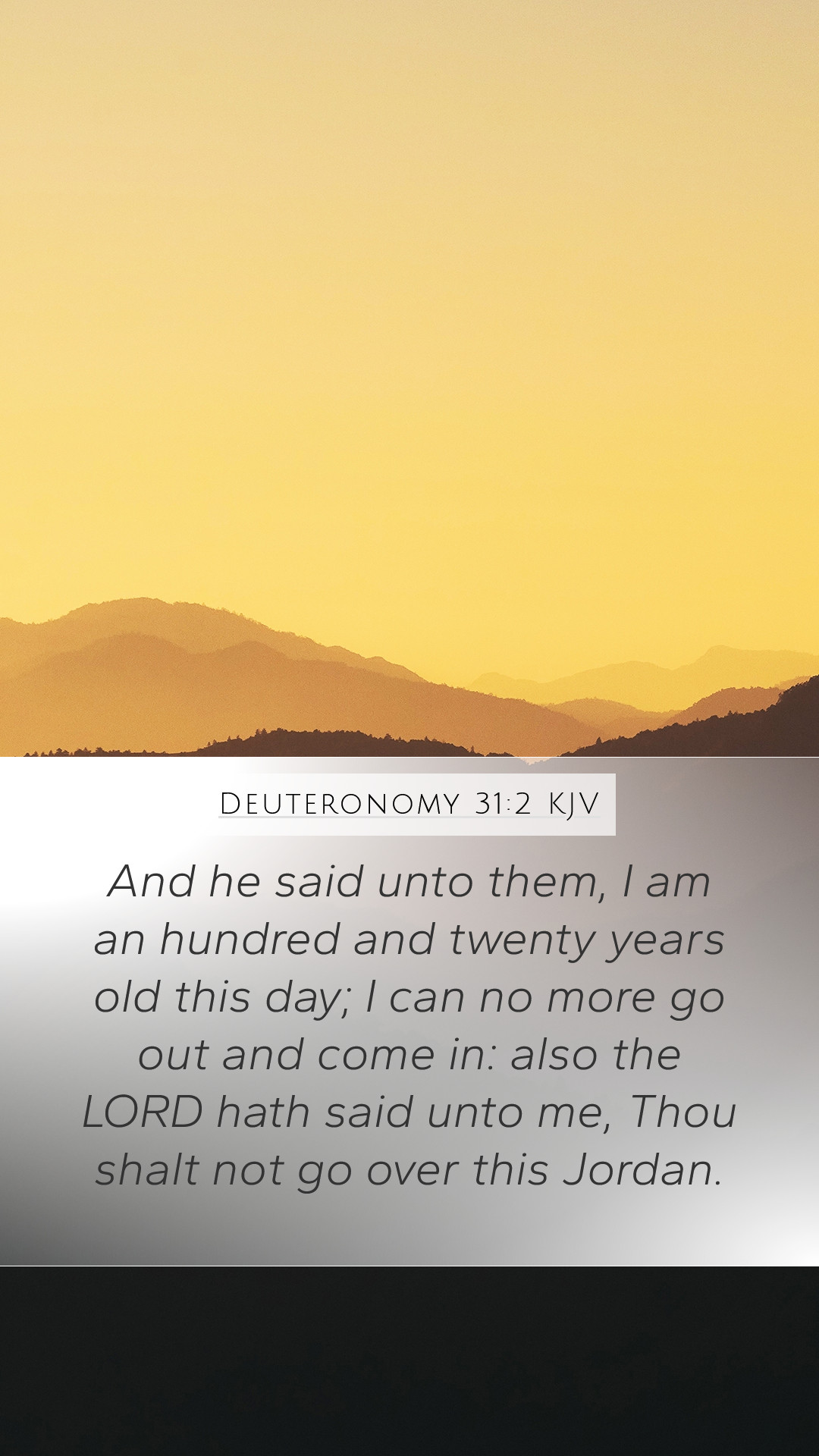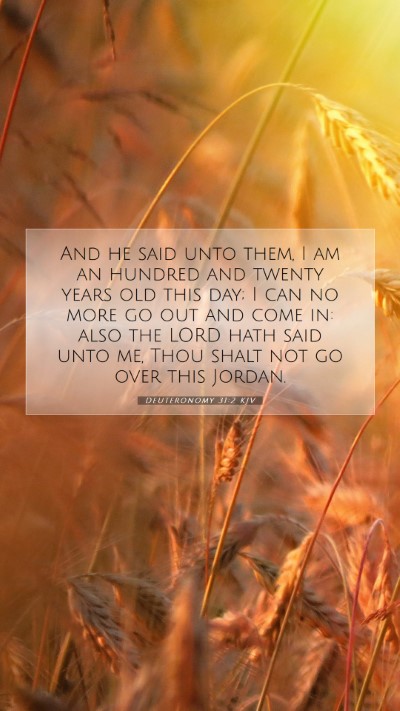Bible Verse Commentary: Deuteronomy 31:2
Deuteronomy 31:2 states, "And he said unto them, I am an hundred and twenty years old this day; I can no more go out and come in: also the Lord hath said unto me, Thou shalt not go over this Jordan." This verse captures a pivotal moment in Moses' life as he prepares to pass leadership to Joshua before the Israelites enter the Promised Land.
Summary and Analysis
This verse signifies Moses' acknowledgment of his age and impending transition of leadership, emphasizing his obedience to God's directive. Below, we explore various interpretations and insights drawn from reputable public domain commentaries by Matthew Henry, Albert Barnes, and Adam Clarke.
-
Matthew Henry's Commentary:
Henry reflects on the humility of Moses as he confronts his limitations. He notes that Moses' admission of being "an hundred and twenty years old" indicates not only his physical frailty but his deep awareness of God's plan. The comment also serves to remind the Israelites of God's faithfulness in guiding them thus far, despite Moses' inability to lead them into the Promised Land due to earlier failures.
-
Albert Barnes' Commentary:
Barnes emphasizes the historical context of this moment, highlighting the importance of leadership transition. He argues that Moses' statement is not just a personal reflection but also reinforces God's covenant with the Israelites and the purpose behind their journey. The significant phrase, "Thou shalt not go over this Jordan," acts as a stark reminder of divine judgment and reaffirms that obedience to God’s commands is paramount.
-
Adam Clarke's Commentary:
Clarke provides further insight into the emotional weight of this passage. He suggests that Moses' farewell addresses indicate a leader deeply concerned for his people’s future. Clarke notes that Moses' inability to enter the Promised Land symbolizes the culmination of a chapter in Israel’s history, instilling the importance of propriety in leadership and reverence for God's authority in directing their affairs.
Thematic Insights
The verse underscores several key themes that resonate throughout Scripture:
- Leadership Transition: It marks a significant point where Moses prepares Joshua and the people for a new chapter. This act of preparing successors is a vital theme in biblical narratives, reflecting the necessity of continuity in leadership and community faith.
- God’s Sovereignty: Moses' limitations come under God’s ultimate authority. The realization that one's ministry or journey may end but God’s promises and plans persist is critical for faithful living.
- Hope and Future: Even as Moses is reminded of his destiny, the Israelites are directed towards their hopeful future in Canaan, reinforcing the importance of trust in God’s promises amid uncertainty.
Bible Verse Meaning and Application
Understanding Deuteronomy 31:2 invites believers to reflect on their own lives regarding leadership, submission to God's will, and the realization of human limitations. It serves as a reminder that life is transient, and that preparation for what lies ahead is essential, whether personally or within a community. Applying these insights fosters deeper Bible study insights and biblical exegesis.
Related Bible Cross References
- Numbers 20:12: God’s declaration to Moses regarding his inability to enter the Promised Land.
- Joshua 1:1-2: The commissioning of Joshua as Moses’ successor and the call to leadership.
- Deuteronomy 32:48-52: A reiteration of God's decree regarding Moses' fate and the significance of the Jordan River.
Conclusion
In summary, Deuteronomy 31:2 is a rich verse packed with meaning that provides valuable lessons on leadership, obedience, and the eternal promise of God. As readers engage with this Scripture, they are challenged to consider their own journeys and how they may apply these principles of faith, obedience, and hopeful anticipation in their daily lives. This serves as an excellent resource for those participating in Bible study groups or seeking online Bible study materials focused on understanding Scripture deeply and thoroughly.


